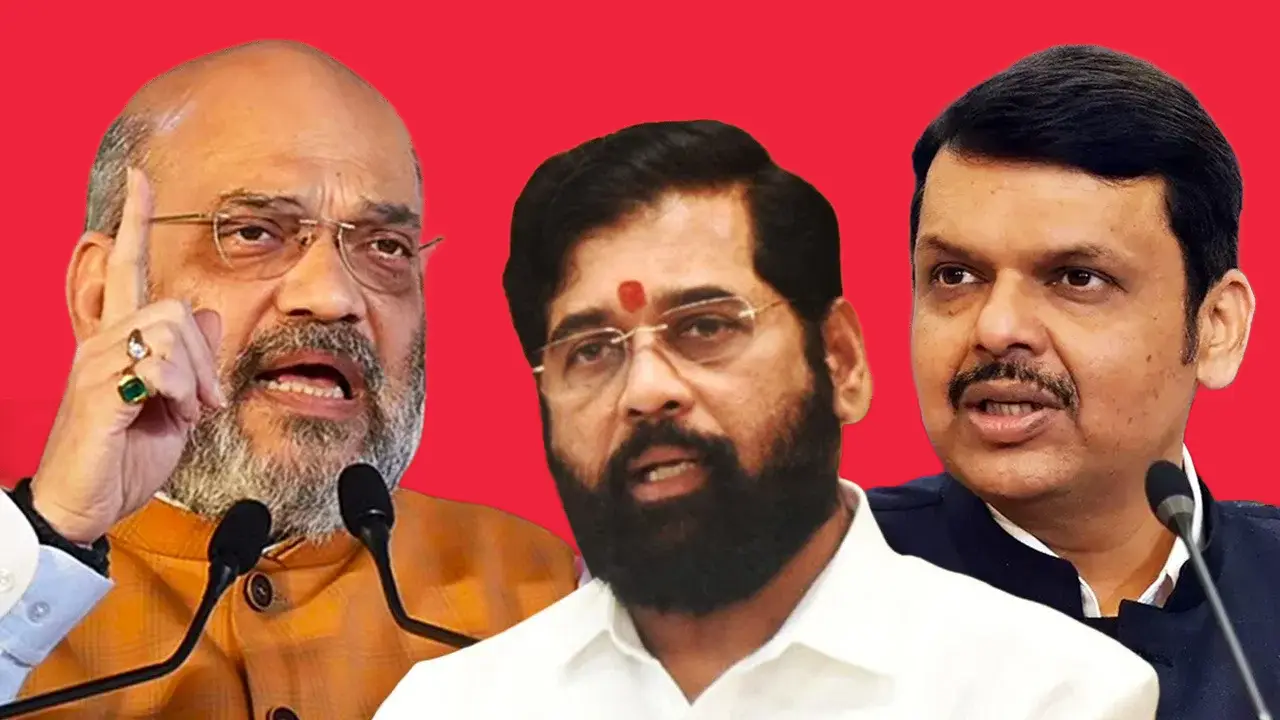NEW DELHI: A close door meeting recently between Maharashtra’s Deputy Chief Minister Eknath Shinde and Union Home Minister Amit Shah has sparked widespread speculation about deepening cracks within the state’s ruling Maha Yuti alliance, just weeks before pivotal municipal elections. Held on April 13 at Mumbai’s Sahyadri Guest House, the closed-door discussion has amplified concerns over the coalition’s unity, as internal disputes over funds and political positions threaten its stability.
The Mahayuti alliance, a coalition of Shiv Sena (Shinde faction), the Bhartiya Janata Party (BJP), and the Nationalist Congress Party (NCP – Ajit Pawar faction), rose to power following the tumultuous 2024 state elections. Its formation traces back to the dramatic 2022 split in Shiv Sena, when Shinde broke away from Uddhav Thackeray’s leadership, aligning with the BJP to oust the Maha Vikas Aghadi government.
Though this partnership secured Chief Minister Devendra Fadnavis’s return to power, Shinde’s faction has increasingly found itself at odds with its allies, a tension laid bare by the recent meeting with Shah. Sources indicate that Shinde sought Shah’s intervention to address grievances over resource allocation and political leverage. Central to the discord is the distribution of state funds, with Shinde’s group alleging neglect by the finance ministry, where NCP leader Ajit Pawar wields significant authority.
Another sore point is the Raigad district guardian minister post, a position of strategic importance due to the area’s economic and electoral weight. Shah’s visit to NCP leader Sunil Tatkare’s residence has fuelled perceptions that the BJP Favors Tatkare for the role, sidelining Shinde’s faction and stoking resentment. With municipal elections looming, these rifts could prove costly. The polls will test the alliance’s strength across Maharashtra’s varied regions. In Mumbai,
Fadnavis faces a direct challenge from Thackeray’s Shiv Sena (UBT), while Shinde’s influence will be scrutinized in Thane and Kalyan-Dombivli, areas where he competes with both the UBT and his BJP partners. His faction’s weaker footing in Pune and Pimpri-Chinchwad, dominated by Pawar’s NCP, further complicates his bid to maintain relevance. “Shinde’s in a tough spot,” noted a Mumbai-based political commentator.
“He needs these elections to prove his faction’s worth, but the alliance’s internal jostling isn’t helping. “The stakes are high for Mahayuti. Control of municipal bodies influences local governance and signals broader political momentum. A faltering performance could embolden the opposition, including Thackeray’s Sena (UBT) and the Congress, particularly in urban centres where voters prioritize civic issues like roads and water supply.
The Raigad dispute, meanwhile, encapsulates the coalition’s broader power struggle, with Shah’s apparent tilt toward the NCP hinting at the BJP’s strategic calculations. As the election countdown begins, the Mahayuti alliance must reconcile these tensions to mount an effective campaign. Political analysts suggest that Shinde’s bargaining power, once bolstered by his role in toppling Thackeray, is now waning. “He has reminded Shah of his past contributions, but the BJP isn’t in a mood to concede much,” a source close to the talks revealed. The coming weeks will reveal whether Shah can broker a truce—or if the alliance’s fractures will reshape Maharashtra’s political future.






